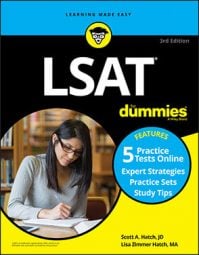The LSAT happens four times a year: in June, October, December, and February. If you want to enter law school the next fall, you should take the LSAT by the prior December, or February at the latest, though it’s always a good idea to take it earlier.
October and December are the most popular test dates because some law schools start taking applications in the fall and begin accepting applicants early in the winter; the earlier you apply, the better your odds of acceptance. The October, December, and February tests are scheduled for Saturdays. The June test is on a Monday.
If you observe the Sabbath on Saturday, you can request to take the test on another day, usually the Monday following the Saturday test date. To do this, have your rabbi or minister write a letter on official stationery, confirming your religious obligations, and send it to the LSAC.
The registration fee for the LSAT is currently $165. If you miss the first deadline and must register late, there’s an additional charge of $70. (All prices are subject to change — and likely will — so be sure to check with the LSAC to find out current charges.)
Keep the following things in mind when registering for the LSAT:
Be sure to register. Okay, duh. But really, be sure to register. The deadlines for registration fall well ahead of test dates, so you need to be on the ball. You can find the deadlines on the LSAC website.
Also, test centers fill up early, so you may not get into the site you want if you don’t register early. If you want to go to law school in September, you most likely need to take the previous December’s LSAT, which means you must register in November. Plan accordingly. And make sure you’re free the day of the test!
When you register, be very careful to enter the correct code for your test center. If you get the code wrong, you may be assigned a test center in a different state — not convenient. (The LSAC doesn’t check for accuracy; the LSAC has no idea where you really want to take the test, so it doesn’t know if you make a mistake.)
Driving several hours the day before your test definitely won’t calm your nerves. You can change your test center through the LSAC website for a fee, but you don’t want to have to worry about that if you can avoid it.
Not every test center offers the LSAT on every test date. Check to make sure that your preferred location is offering a test on your preferred date. (Occasionally, you can get the LSAC to administer a test in a different location, but only if you can’t travel to a regular site and if you register well in advance.) Safeguard your admission ticket when it arrives.
If something comes up — you catch the flu, you get sent overseas to war, you go into labor — and you’re unable to take the LSAT, you can get a partial refund. Granted, you get only a small portion of your registration fee back, but that’s better than nothing. The LSAC website has deadlines for sending in a written request.
If you discover before the test date that you won’t be able to make it that day, you can change your test date. Of course, you have to pay a fee. The LSAC website has the deadlines for sending in a written request.
If you absolutely can’t afford the cost of the LSAT, you can apply for a fee waiver on the LSAC website. The LSAC doesn’t want to deny access to the legal profession solely on the basis of economic disadvantage. Be warned, though; the requirements are quite strict.

